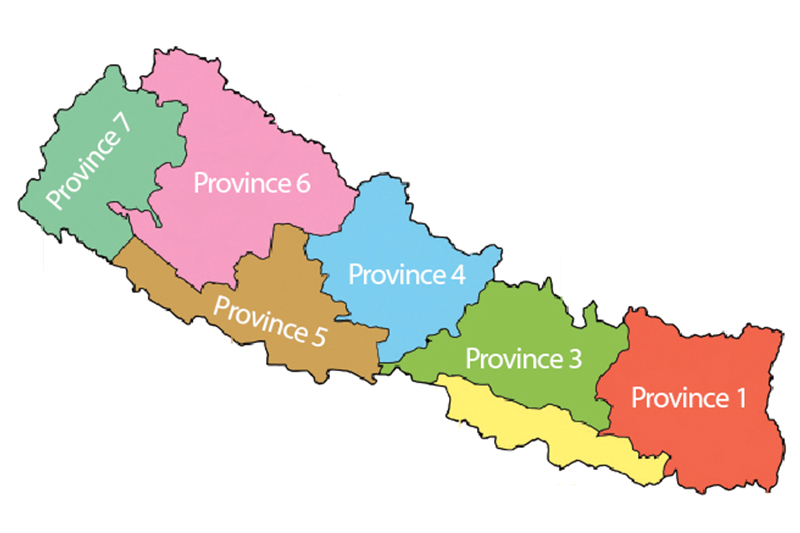Finding resources key challenge in federalism
Kathmandu, December 19
Experts have said that fiscal federalism is going to be the biggest challenge in the short term as the transition to the new system is likely to incur a huge cost for the country. The country has recently embarked towards the federal system ending the decade-long political transition. However, experts today said that the federal system will move ahead with legal and institutional transition for the next few years as the government has to introduce new laws and set up institutions to manage the federal system.
Speaking at a national seminar titled ‘Fiscal Challenges in Federal Nepal’ organised by the Society of Economic Journalists - Nepal (SEJON) today, Yubraj Khatiwada, former vice chairman of National Planning Commission, highlighted that prudent use of the fiscal space that the country will have — as there is potential to raise the revenue base and foreign loans — in the sectors that propel growth and bridge the yawning gap of infrastructure will lead the country towards robust growth and increase the government’s income.
Citing the federal (central) government will be more efficient and leaner in the federal system, Khatiwada said that the state and local governments will deal with the public utility services and the central government can focus on implementing national level projects to drive the country towards rapid development.
However, contrary to Khatiwada’s views, former finance secretary Shanta Raj Subedi highlighted the key constraints of generating resources to manage the federal structure.
“With the implementation of federalism, the budget volume of the central government is also going to increase,” said Subedi while presenting a paper on ‘Fiscal Challenges in Federal Nepal’.
While the central government has to share its revenue including Value Added Tax and excise duty with sub-national governments, it will also have to transfer various grants to them.
“Even with the 22 per cent annual average revenue growth, our resources are going to be squeezed,” added Subedi.
According to Subedi, the government has not been able to utilise foreign grants while domestic debt cannot be raised at once despite there being enough space for internal borrowing.
“Provinces are going to face resources crunch for at least two or three years and the central government must bear those liabilities while we cannot reduce the amount of grants that we have transferred to local units,” said Subedi. He also suggested broadening of the tax net, curbing revenue leakages and increasing tax compliance to address the problem of shortage of resources.
Speaking at the seminar, Finance Secretary Shankar Adhikari, however, contended that the overall administrative cost is likely to go down in the federal system. “The administrative or recurrent expenditures will increase for a maximum of three years. But the number of cost centres will go down in the federal set up which will also reduce the administrative cost,” he said.
“We should not be scared of a notion that federalism is going to be too costly for us. Instead, the expenditure is likely to go down significantly when the number of spending units falls drastically,” he added, estimating that the 3,500 ‘cost centres’ will drop to around 2,000.
According to Finance Secretary Adhikari, foreign direct investment should be attracted in the country to address the shortage of resources. He also said that project selection and allocation of budget at the sub-national levels should be undertaken on ‘a need-based approach’.
“It’s true that the fiscal responsibility and liability of the government is going to increase in the federal system. Though it is challenging, it is not impossible,” said Adhikari. “With a stable government in place, we will have a conducive climate for investment. This will boost the revenue buoyancy,” he added.
Kantika Sejuwal, the mayor of Chandannath Municipality in Jumla, lamented that the central government has discriminated against Jumla in fiscal transfer. “The budget allocation is uneven and the fiscal transfer made to our municipality was very low,” she said, vowing to utilise local resources and reducing the dependency on the central government for fiscal grants.
Committed cost of the federal government
Heading
2013-14
2014-15
2015-16
2016-17
2017-18
National security and defence
Rs 78.01bn
Rs 69.83bn
Rs 79.72bn
Rs 84.66bn
Rs 100.18bn
Foreign affairs
Rs 1.95bn
Rs 2.98bn
Rs 4.67bn
Rs 4.97bn
Rs 6.30bn
Judiciary
Rs 2.23bn
Rs 3.01bn
Rs 4.45bn
Rs 4.81bn
Rs 5.22bn
Federal administration
Rs 63.74bn
Rs 73.95bn
Rs 84.79bn
Rs 95.21bn
Rs 100.21bn
Principal and interest payment
Rs 60.08bn
Rs 76.18bn
Rs 84.91bn
Rs 66.16bn
Rs 83.40bn
Equity and loan investment
Rs39.78bn
Rs 45.32bn
Rs 71.64bn
Rs 84.32bn
Rs 86.51bn
Social security
Rs12.99bn
Rs 14.69bn
Rs 19.25bn
Rs 35.64bn
Rs 39.26bn
Source: MoF






